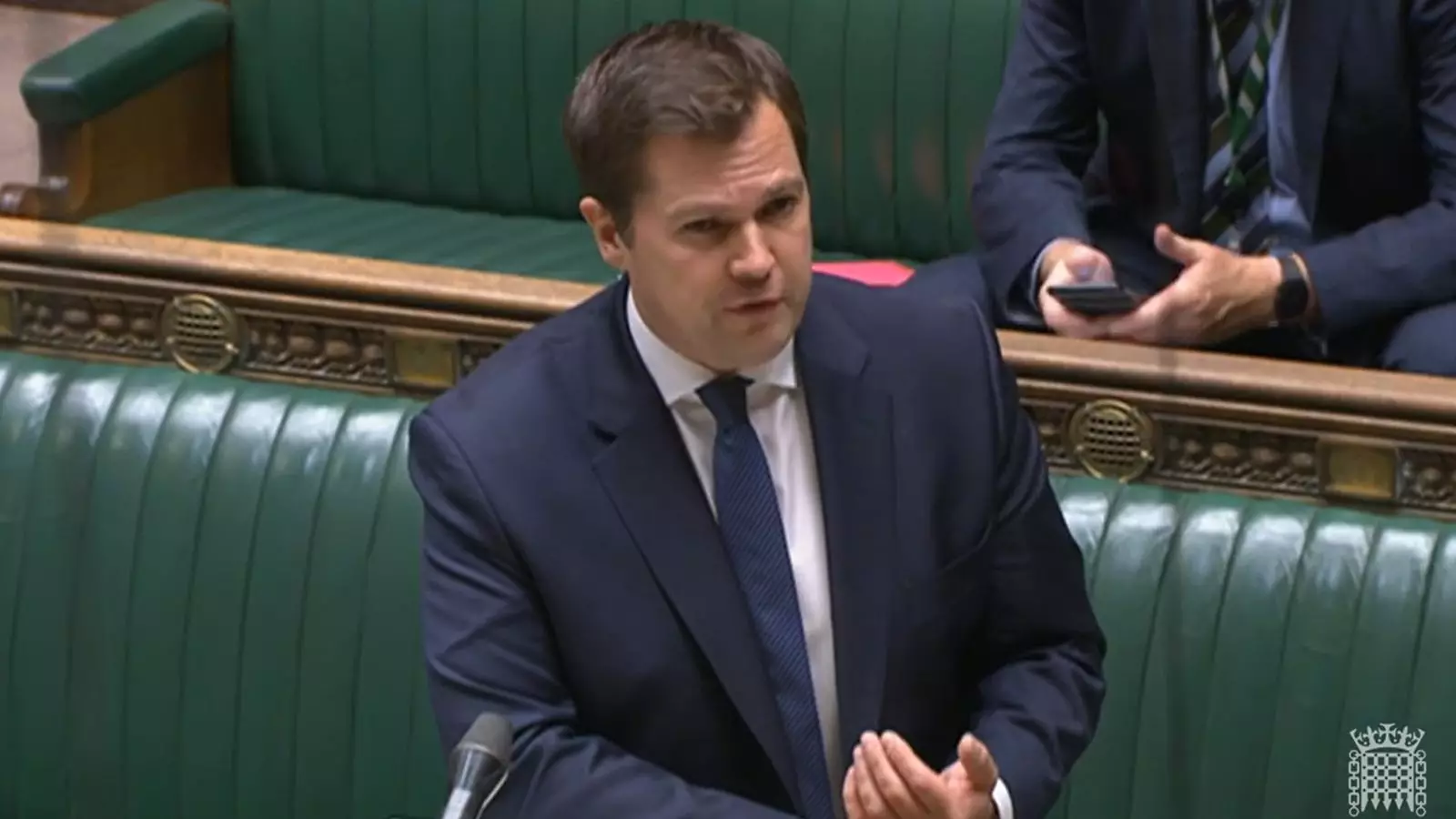Robert Jenrick, the immigration minister, has recently stepped down from his position due to “strong disagreements” with the government’s Rwanda policy. This decision comes after Rishi Sunak, the Chancellor of the Exchequer, introduced emergency legislation aimed at reviving the stalled asylum plan. However, Jenrick expressed doubts about whether this legislation would effectively address the legal challenges that have hindered the implementation of the scheme. In response to ongoing speculation, Home Secretary James Cleverly confirmed Jenrick’s resignation in the House of Commons. With mounting concerns over the Supreme Court’s ruling that the deportation of immigrants to East Africa is unlawful, Jenrick’s absence from the frontbench during Cleverly’s statement further fueled speculation.
Moments after Cleverly’s confirmation, Jenrick took to social media to announce his resignation. He stated that he could not continue in his position when he had such strong disagreements with the government’s immigration policy. In his resignation letter, Jenrick criticized the emergency legislation for not going far enough to address future legal challenges. While the draft bill compels UK judges to treat Rwanda as a safe country and grants ministers powers to disregard sections of the Human Rights Act, it falls short of dismissing the European Convention on Human Rights (ECHR), as some hardliners have demanded. However, adhering to these demands could have sparked controversy within Sunak’s centrist One Nation faction and risked breaking international law, leading to Rwanda pulling out of the deal.
Jenrick argued that small boat crossings were causing “untold damage” to the country and emphasized the need to prioritize national interests over contested interpretations of international law. He advocated for clear legislation that would limit the ability of domestic and foreign courts to block or undermine the policy’s effectiveness. Jenrick’s criticisms reflect his disappointment in the proposed bill, which he sees as a hopeful endeavor lacking practical experience. The resignation of Tory MP Andrea Jenkyns on the right of the party further underscored the potential ramifications for Sunak’s leadership.
While Jenrick’s resignation was welcomed by some members of the Conservative Party, the move was met with criticism from opposition MPs. The Liberal Democrats described it as yet another instance of Conservative chaos, with another minister fleeing a sinking ship. Labour’s National Campaign Coordinator, Pat McFadden, characterized the government as a “Tory circus of gimmicks and leadership posturing,” emphasizing the need to deliver real change on critical issues affecting working people. McFadden argued that only Labour could address concerns such as the cost of living, energy bills, and fair wages.
Rishi Sunak committed to the emergency legislation following the Supreme Court’s rejection of the deportation plan. The Court expressed concerns over Rwanda’s asylum process and the potential violation of international law by returning individuals to the countries from which they were fleeing. Moderate MPs within the Conservative Party urged the government to prioritize the rule of law and not undermine the oversight of the Strasbourg court. Sunak sought to garner support among backbench Conservatives by addressing the 1922 Committee, urging MPs to unite behind him. However, some right-wing members expressed reservations, fearing that the failure to implement this flagship policy would harm their chances at the next election, particularly given Sunak’s promise to “stop the boats.” Supporters of Suella Braverman, the former Home Secretary, deemed the proposed bill “fatally flawed,” suggesting that it could potentially lead the Tories into “electoral oblivion.”
The resignation of Robert Jenrick highlights the deep divisions within the Conservative Party regarding immigration policy and the government’s approach to dealing with asylum seekers. While some members support stricter measures and prioritizing national interests, others believe in adhering to international law and upholding the rights of individuals fleeing persecution. This clash of ideologies has created a challenging environment for leadership, as the government seeks to find a balance between public opinion, legal scrutiny, and international commitments. The resignation serves as a reminder of the complexities that arise when attempting to address immigration issues and highlights the need for nuanced and comprehensive policies.

Leave a Reply